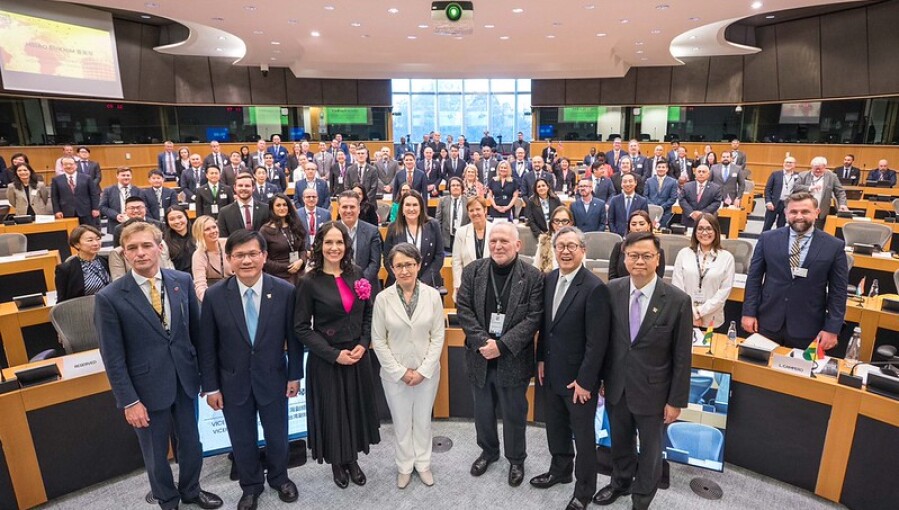- cross-posted to:
- [email protected]
- [email protected]
- cross-posted to:
- [email protected]
- [email protected]
cross-posted from: https://mander.xyz/post/41671739
Over the past week, two moves in East Asia and Europe clearly signal that the handling of the ‘Taiwan question’ is entering a new phase. It is one in which neither Tokyo nor Brussels is prepared simply to abide by a carefully calibrated diplomatic equilibrium coordinated from Beijing.
The emergence of Japan’s new prime minister, Sanae Takaichi, with her hawkish remarks about Taiwan, in which she said any blockade of the country by Chinese forces would be tantamount to a “national survival crisis situation”, coupled to the European Union’s decision to allow Taiwan’s vice-president, Hsiao Bi‑khim, to speak at the European Parliament where she became the first ever sitting Taiwanese vice-president to do so, represent a bolder posture by both Tokyo and Brussels and a more direct than usual challenge to the diplomatic norms that Beijing has long counted on.
…
Takaichi’s comments in Japan’s Diet, that a Chinese military move against Taiwan might constitute “a situation threatening [Japan’s] survival” and subsequently trigger Japan’s own self-defence mobilisation, depart from Tokyo’s longstanding strategy of ambiguity.
Historically, Japanese prime ministers have avoided naming Taiwan in scenarios deemed to trigger Japan’s exercise of collective self-defence as was widely reported in the hours and days after she spoke, but her move signals a willingness to link Japan’s regional security directly with Taiwan’s status after years of bilateral parliamentary exchanges between the two.
…
[In response to Takaichi’s comment] the Chinese consul-general in Osaka, Xue Jian, issued a now-deleted social media post threatening Takaichi’s “dirty neck”. Such language by Chinese officials underscores how volatile the region has become even if national leaders shake hands and smile for cameras at regional and global events.
…
Simultaneously, across Eurasia, the EU has taken a notable step with Taiwan’s vice-president, Hsiao Bi-khim addressing the annual summit of the Inter‑Parliamentary Alliance on China (IPAC) held at the European Parliament in Brussels.
…
While the speech by Hsiao was delivered in an unofficial parliamentary gathering rather than at a formal EU foreign-policy event, the symbolism matters. Hsiao told the gathering: “Europe has defended freedom under fire. And Taiwan has defended democracy under pressure” ABC News reported, at the same time urging deeper trade, technology and security ties with EU partners while warning that peace in the Taiwan Strait was “a cornerstone of global prosperity.”
To a standing ovation, Hsiao added “In an era marked by increasing fragmentation, volatility and rising authoritarianism, this gathering affirms something vital - that democracies, even when far apart, are not alone” the ABC report added.
For Brussels, the decision to let Hsiao speak appears to signal two things: one, a recognition that Taiwan is no longer a peripheral “China issue” but integral to global democratic and technological supply-chains; and two, a willingness to test the limits of the conventional “one-China policy” façade by offering Taiwan high-visibility diplomatic space.
…
In sum therefore, what we are witnessing is not merely isolated diplomatic provocation of China, by Tokyo and Brussels, but the establishment of a new set of alliances and postures in East Asia’s Taiwan-China equation.
Japan, under Takaichi, is openly signalling that the fate of Taiwan, a 50-year colony run from Tokyo from 1895 to 1945, is no longer someone else’s business - it is a matter of Japanese survival. The EU, by elevating Taiwan’s voice in Brussels, is signalling that the island matters to the global democratic community – a group China is not qualified to join.
…


